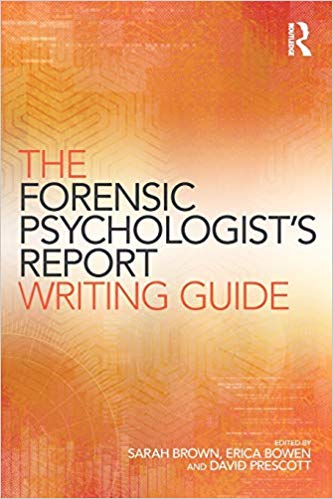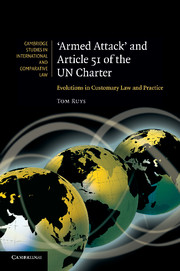The Forensic Psychologist’s Reporting Writing Guide is the first book to provide both student trainees and practitioners with best practice guidance for one of the core skills of their role.
Written and edited by an international range of experts from the UK, North America and Australasia, it provides clear advice on a range of assessments, from psychometric tests to personality functioning, and includes real-life examples to illustrate key points. Uniquely, the book also offers guidance on the range of different client groups that forensic psychologists work with across both civil and legal contexts, including juveniles, female clients, couples and those with cognitive impairments. From core principles to writing style to key issues, each chapter also includes a checklist of advice and further reading.
Comprehensive and practical, The Forensic Psychologist’s Reporting Writing Guide is a user-friendly companion to this critical and often overlooked skill, and will be essential reading for both neophyte and experienced forensic psychologists alike.
چکیده فارسی
راهنمای نگارش گزارشگری روانشناس قانونی اولین کتابی است که بهترین راهنماییهای عملی را برای یکی از مهارتهای اصلی نقش خود به دانشجویان کارآموز و شاغل ارائه میکند.
نوشته و ویرایش شده توسط طیفی از کارشناسان بینالمللی از بریتانیا، آمریکای شمالی و استرالیا، توصیههای روشنی را در مورد طیف وسیعی از ارزیابیها، از آزمونهای روانسنجی تا عملکرد شخصیت ارائه میدهد، و شامل مثالهایی از زندگی واقعی برای نشان دادن نکات کلیدی است. این کتاب بهطور منحصربهفرد همچنین راهنماییهایی را در مورد طیف وسیعی از گروههای مشتریان مختلف ارائه میدهد که روانشناسان قانونی در هر دو زمینه مدنی و قانونی با آنها کار میکنند، از جمله نوجوانان، مراجعان زن، زوجها و کسانی که دارای اختلالات شناختی هستند. از اصول اصلی گرفته تا سبک نوشتن تا مسائل کلیدی، هر فصل شامل چک لیستی از توصیه ها و مطالعه بیشتر است.
جامع و عملی، راهنمای نگارش گزارش روانشناس قانونی یک همراه کاربرپسند برای این مهارت حیاتی و اغلب نادیده گرفته شده است، و خواندنی ضروری برای روانشناسان جدید و مجرب پزشکی قانونی است. p>
ادامه ...
بستن ...
Ebook details:
عنوان: The Forensic Psychologist's Report Writing Guide
نویسنده:Sarah Brown (Editor), Erica Bowen (Contributor), David Prescott (Contributor)
ناشر: Routledge; 1 edition (May 7, 2017)
زبان: English
شابک: 113884151X
حجم: 2 Mb
فرمت: True Pdf
ادامه ...
بستن ...
Introduction Erica Bowen, Coventry University, Coventry, UK Section 1: general issues of reporting across different types of assessments Brief overview/introductionDavid Prescott, Becket Family of Services in the USAChapter 1: Reporting psychometric tests Glenda Liell, NOMS, UK and Martin Fisher Consultant and Forensic Psychologist, NOMS, UK, Portsmouth University, UK & Southern Health NHS Foundation Trust, UKChapter 2: Reporting intellectual capacity/cognitive functioning Robin Wilson, Wilson Psychological Services, Sarasota, Florida and David Tobin, Centre for Integrative Psychological Services, New Hampshire and Greenfield, Massachusetts, USAChapter 3: Reporting actuarial risk Professor Martin Rettenberger, Centre for Criminology, Wiesbaden andDepartment of Psychology, Johannes Gutenberg-University Mainz (JGU), Germany, and Professor Leam Craig, Forensic Psychology Practice Ltd, University of Birmingham, School of Social Sciences, Birmingham City University UK Chapter 4: Reporting case formulation and opinion Professor Andrew Day, Deakin University, AustraliaChapter 5: Reporting structured professional judgement Caroline Logan, Greater Manchester West Mental Health NHS Foundation Trust & University of Manchester, UKChapter 6: Reporting personality functioning Caroline Logan, Greater Manchester West Mental Health NHS Foundation Trust & University of Manchester, UK and Margaret Fenton, Greater Manchester West Mental Health NHS Foundation Trust, UKChapter 7: Reporting change Professor Devon Polaschek, Victoria University of Wellington, New ZealandSection 2: considerations when reporting on specific client groups Brief overview/introduction David Prescott, Becket Family of Services in the USAChapter 8: Reporting on juvenile clients Dr. Clare-Ann Fortune, Victoria University of Wellington, New ZealandChapter 9: Reporting on female clients Susan Cooper, Tees, Esk and Wear Valleys NHS Foundation Trust, UK and Kelley Blanchette, Correctional Service Canada Chapter 10: Reporting on vulnerable clients including those with cognitive impairments Robin Wilson, Wilson Psychological Services, Sarasota, Florida, USA; Department of Psychiatry and Behavioural Neurosciences McMaster University, Hamilton, Ontario and Brandie Stevenson, Pryor, Linder & Associates, Safe Management Group, Oakville, Ontario, CanadaChapter 11: Reporting on relationships, e.g. parenting competence, couples' assessments Wendy Morgan, London Metropolitan University, UK and Erica Bowen, Coventry University, UK Section 3: considerations when reporting in specific contextsBrief overview/introduction David Prescott, Becket Family of Services in the USAChapter 12: Reporting in secure settings, e.g. prisons, forensic hospitals Martin Fisher, NOMS, UK, Southern Health Foundation NHS Trust, UK; Dr Kerry Beckley, NOMS, UK; & Dr Jo Bailey, NOMS, UKChapter 13: Reporting for parole or other hearings, e.g. mental health tribunals Professor Michael Daffern, Centre for Forensic Behavioural Science, Swinburne University of Technology; Dr. Jessica Mooney, Youth Health and Rehabilitation Service, Caraniche; Dr. Kylie Thomson, Centre for Forensic Behavioural Science, Swinburne University of Technology; & Ms. Gabrielle Klepfisz, Centre for Forensic Behavioural Science, Swinburne University of Technology; AustraliaChapter 14: Reporting for community contexts, e.g. probation, community-based programmes/organisations Lawrence Ellerby & David Kolton, Forensic Psychological Services, Ellerby, Kolton, Rothman & Associates, CanadaAppendix 1: Example Report 1Appendix 2: Example Report 2Appendix 3: Example Report 3
ادامه ...
بستن ...










